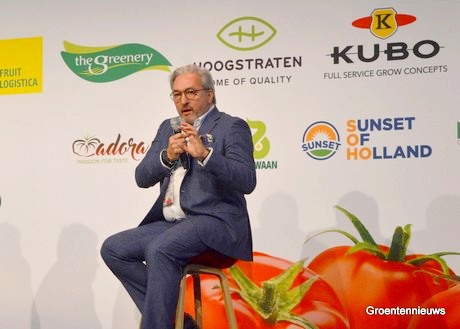870 SKUs (Stock Keeping Units) for fresh tomatoes. No one benefits from that, according to Stephan Weist of the German retailer REWE Group during the recently held Global Tomato Congress. The unbelievably high number caused astonishment among the attending international tomato industry players, but they themselves are also partly responsible for the huge growth of tomatoes on the shelf. "Only a brand manager hasn’t made a brand yet, according to Stephan.

He would like to go back to ‘only’ 24 SKUs. "That way you make it easier for the consumer to choose and moreover the chance that the consumer might also buy another tomato than his top 3 favorites increases."
Private labels give REWE the desired control
The cause of this enormous differentiation is the drive for growth of the tomato sector. But in the meantime, Stephan wonders if this huge diversity is not going too far. “Of those 870 SKUs, 97% consists of the top 50 most purchased fresh tomato products. That means that the other mountain of SKUs actually only makes things confusing for consumers and it also gives us the necessary headaches."
Stephan, therefore, wants to return to ‘only’ about twenty SKUs. “Private labels work well for us. We have been focusing mainly on that for five years now. It makes that we, as a retailer, are better ‘in control’ and we believe that this improves the clarity of the shelf. In any case, we fill our shelves purely on the basis of hard figures and not on the basis of emotion.”
More expensive varieties will gain ground
Convinced of the ‘more structured’ taken course, it sometimes annoys Stephan when he sees the choice of local German retailers. “Packaging or products that we have removed long ago are still present on the shelf. According to me, that does not help to keep a clear overview of the shelf.”
When asked about the development of the same tomato shelf, Stephan predicts that the gap between ‘basic’, cheaper tomato varieties and more expensive, ‘high end’ varieties will become smaller. But that will take time. "For the German consumer, a tomato is primarily ‘necessary food’. That is different in Spain or Belgium. You see more appreciation there."
For more information:
REWE Group
www.rewe-group.de
